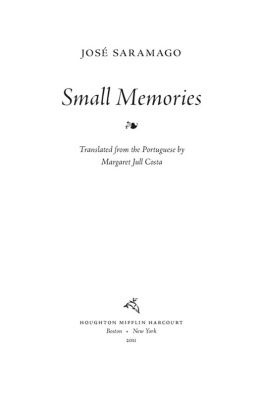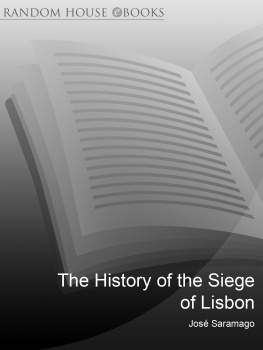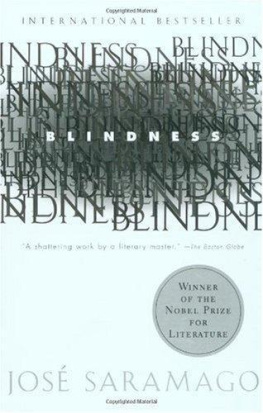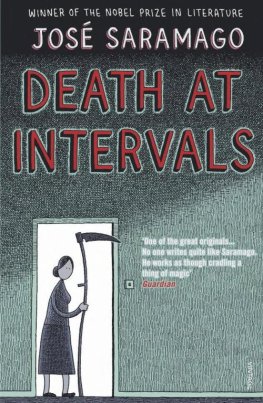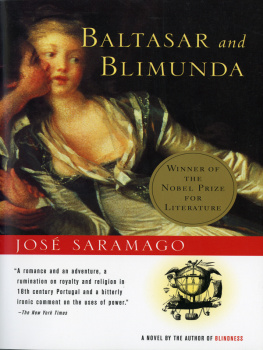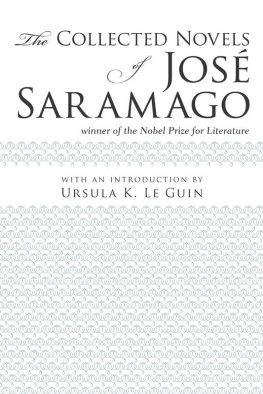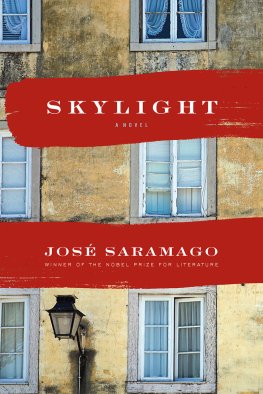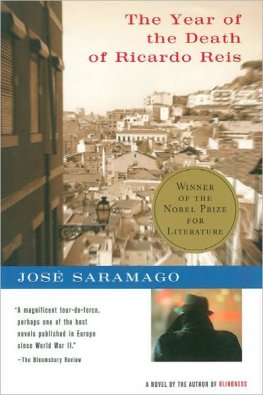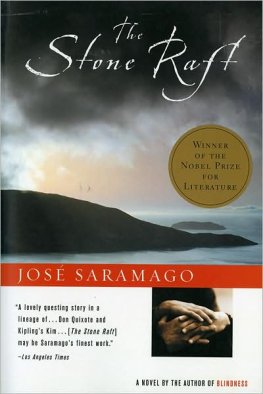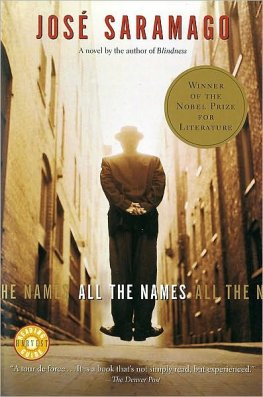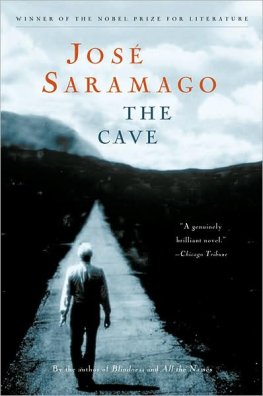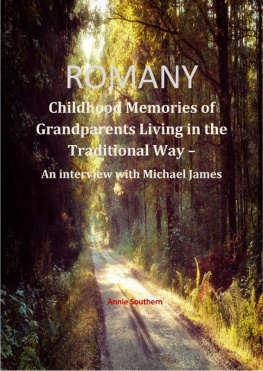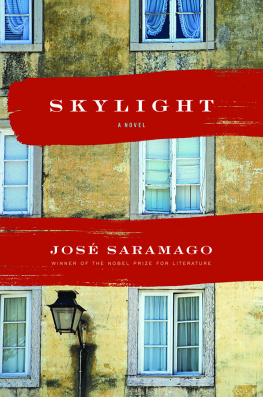Translated from the Portuguese by
Margaret Jull Costa
HOUGHTON MIFFLIN HARCOURT
BostonNew York
2011
First U.S.edition
Copyright 2006 by Jos Saramago and Editorial Caminho, SA, Lisbon,
by arrangement with Literarische Agentur Mertin, Inh. Nicole Witt e. K.,
Frankfurt am Main, Germany
English translation copyright 2009 by Margaret Jull Costa
ALL RIGHTS RESERVED
For information about permission to reproduce selections from this book,
write to Permissions, Houghton Mifflin Harcourt Publishing Company,
215 Park Avenue South, New York, New York 10003.
www.hmhbooks.com
First published as As Pequenas Memrias in 2006 by
Editorial Caminho, SA, Lisbon
First published in Great Britain in 2009 by Harvill Secker, Random House
Library of Congress Cataloging-in-Publication Data
Saramago, Jos.
[Pequenas memrias. English]
Small memories / Jos Saramago ; translated from the Portuguese
by Margaret Jull Costa.1st U.S. ed.
p. cm.
"First published as As pequenas memrias in 2006 by Editorial Caminho,
SA, Lisbon; First published in Great Britain in 2009 by Harvill Secker,
Random House"T.p. verso.
ISBN 978-0-15-101508-5
1. Saramago, JosChildhood and youth. 2. Authors, Portuguese
20th centuryBiography. I. Costa, Margaret Jull. II. Title.
PQ 9281. A 66 Z 4613 2011 869.342dc22
2010042109
Book design by Melissa Lotfy
Printed in the United States of America
DOC 10 9 8 7 6 5 4 3 2 1
FSC MIX
Paper from
responsible sources
FSC C101537
www.fsc.org
For Pilar, who had not yet been born
and who took so long to arrive
Let yourself be led by the child you were.
From The Book of Exhortations
T HE VILLAGE IS CALLED Azinhaga and has, so to speak, been where it is since the dawn of nationhood (it had a charter as early as the thirteenth century), but nothing remains of that glorious ancient history except the river that passes right by it (and has done, I imagine, since the world was created) and which, as far as I know, has never changed direction, although it has overflowed its banks on innumerable occasions. Less than half a mile from the last houses, to the south, the Almonda, for that is the name of my village's river, meets the Tejo, which (or, if you'll allow me, whom) it used to help, in times past and as far as its limited volume would allow, to flood the fields when the clouds unleashed the torrential winter rains, and the dams upstream, brimful and bursting, were obliged to discharge the excess of accumulated water. The land around there is flat, as smooth as the palm of your hand, with no orographic irregularities tospeak of, and any dikes that were built served not so much to contain the powerful rush of the river when it floods as to guide it along a course where it would cause least damage. From those distant days onward, the people born and bred in my village learned how to deal with the two rivers that shaped its character, the Almonda, which slips past its feet, and the more distant Tejo, half-hidden behind the wall of poplars, ash trees and willows that accompany it, and, for good reasons and bad, both rivers are omnipresent in the memories and conversations of every family. It was here that I came into the world and it was from here, when I was not yet two years old, that my parents, migrants driven by necessity, carried me off to Lisbon and to other ways of feeling, thinking and living, as if my having been born in the village were merely the result of some mistake made by chance, some momentary lapse on the part of destiny, a lapse for which destiny still had the power to make amends. This proved not to be the case. The child, unnoticed, had already put out tendrils and sent down roots, and there had been time for that fragile child-seed to place his tiny, unsteady feet on the muddy ground and to receive from it the indelible mark of the earth, that shifting backdrop to the vast ocean of air, of that clay, now dry, now wet, composed of vegetable and animal remains, of detritus left behind by everything and everyone, crushed and pulverized rocks, multiple, kaleidoscopic substances that passed through life and to life returned, just like the suns and the moons, times of flood and drought, cold weather and hot, wind and no wind, sorrows and joys, the living and the not. Only I knew, without knowing I did, that on the illegible pages of destiny and in the blind meanderings of chance it had been written that I would one day return to Azinhaga to finish being born. Throughout my childhood and my early adolescence, that poor, rustic village, with its murmuring frontier of green trees and water, with its low houses surrounded by the silver-gray of olive trees, sometimes scorched by the burning summer sun, sometimes gripped by the murderous winter frosts or drowned by the floodwaters that came in through the front door, was the cradle in which my gestation was completed, the pouch into which the small marsupial withdrew to make what he alone could make, for good or possibly ill, of his silent, secret, solitary self.
The experts say that the village was born and grew up along a path, an azinhaga, which comes from the Arabic word as-zinaik meaning "narrow street," but, taken literally, that couldn't have been true in those early days, because a street, be it wide or narrow, is still a street, whereas a path can never be more than a shortcut, a way of reaching your destination more quickly, a route which, generally speaking, has no future and no great ambition to be any longer than it is. I don't know at what point the widespread cultivation of olive trees was introduced into the region, but I'm sure, because the older villagers told me so, that some of the most ancient of those trees would have seen two or possibly three centuries pass them by. They will see no more though. A few years ago, acres and acres of land planted with olive trees were ruthlessly cleared, hundreds of thousands of trees were cut down, ripped from the deep soil, or else the old roots of trees that had given light to lamps and flavor to stews were left to rot. The landowners, most of them owners of vast estates, were paid by the European Union per tree uprooted, and now, in place of the mysterious and vaguely troubling olive groves of my childhood and adolescence, in place of the gnarled trunks covered in moss and lichen and full of holes in which the lizards could hide, in place of the canopies of branches laden with black olives and with birds, what we see is one enormous, monotonous, unending field of hybrid corn, all grown to the same height, possibly with the same number of leaves per stem, and tomorrow perhaps with the exact same arrangement and number of ears and the same number of kernels on each ear. I'm not complaining, I'm not bemoaning the loss of something that didn't even belong to me, I'm simply trying to explain that this present-day landscape isn't mine, it isn't the place where I was born, I didn't grow up there. As we all know, corn is a vital crop, more important for many people than olive oil, and I myself, when I was a boy, in the years of my early adolescence, would walk the cornfields after the workers had finished harvesting, with a cloth bag slung around my neck, picking the ears they had missed. I must confess, however, that I now take a somewhat wicked pleasurea revenge I neither sought nor wanted, but which came to meet me of its own accordwhen I hear the people in the village say that it was a mistake, a huge blunder, to have got rid of the old olive groves. No point now, I think, crying over spilt oil. And they tell me that new olive trees are now being planted, but of a kind which, however long they live, will never reach any great height. This variety grows more quickly, and its lack of height makes it easier to pick the olives. What I don't know is where the lizards will go.
Next page
